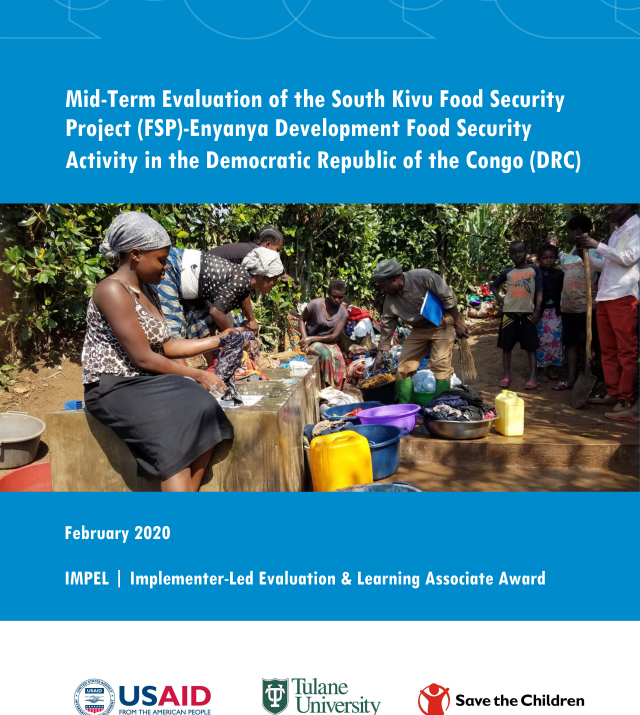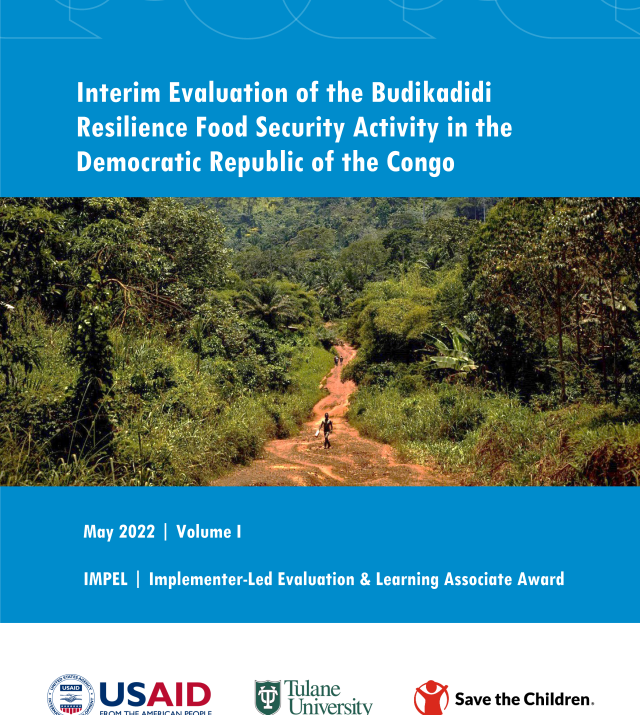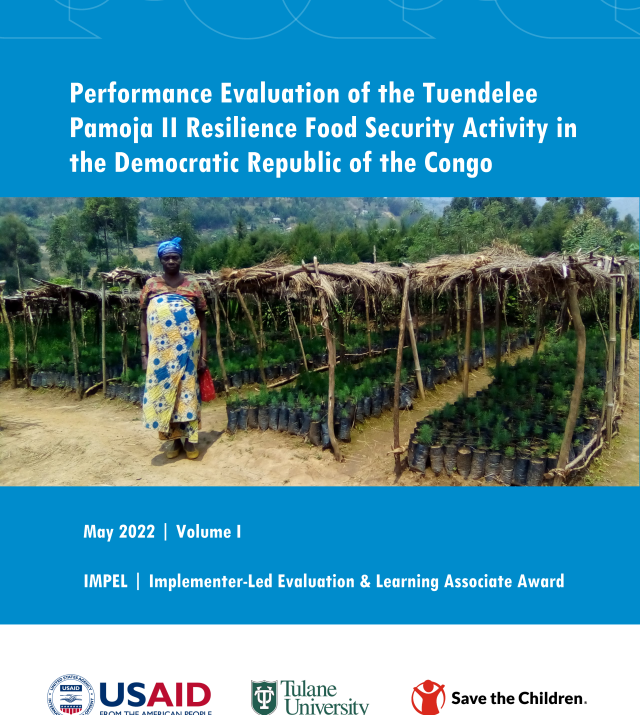
Performance Evaluation: Tuendelee Pamoja II Development Food Security Activity in the Democratic Republic of the Congo

Overview
To assist vulnerable populations of the Eastern Democratic Republic of the Congo (DRC), the United States Agency for International Development’s (USAID) Bureau for Humanitarian Assistance (BHA) awarded Food for the Hungry a 5-year Resilience Food Security Activity (RFSA), Tuendelee Pamoja II (TPII), to be implemented from October 2016–September 2021, with a budget of $71 million. The central goal of TPII was “All members of households from all tribes in South Kivu and Tanganyika provinces of the DRC live with social and economic well-being.”
TPII was designed to reach 214,000 households (HHs) in the two territories of Tanganyika (Kalemie territory: Kalemie and Nyemba health zones and in Moba territory: Moba and Kansimba health zones) and one territory in South Kivu (Walungu territory: Walungu, Mubumbano, Kaziba health zones), with interventions in agriculture, health, nutrition, water and sanitation, literacy, and conflict transformation. Tuendelee Pamoja II is a follow-on activity to the Development Food Assistance Program (DFAP) TPI, which operated in the same geographic zones between 2011 and 2016. Prior to TPI, FH implemented the Multi-Year Assistance Project (MYAP) in Kalemie and Moba between 2008 and 2011.
Performance Evaluation
In 2021, under the USAID BHA Implementer-Led Evaluation and Learning (IMPEL) Associate Award with Save the Children, Tulane University School of Public Health and Tropical Medicine (Tulane) was subcontracted to conduct a performance evaluation, including a population-based survey (PBS) and a resilience assessment of TPII. This PBS collected representative data on a number of lower-level outcomes from 1,231 HHs and/or individuals in July/August 2021.
The PBS serves as the second phase of a pre-post survey cycle, with data on the same indicators collected in both survey rounds. Statistically detecting changes (if any) for all practice and behavioral change indicators at the population level (the TPII coverage area) can help inform the performance of the award. It should be noted that the evaluation does not include data from areas in which the intervention was not implemented (i.e., a counterfactual). While the evaluation results can be used to help explain differences between the pre- and post-values and may therefore help paint a general picture about overall performance, true attribution is only possible with experimental and quasi-experimental evaluation designs, which are not being used in this evaluation.
Performance Evaluation Brief
Prepared by Tulane University School of Public Health and Tropical Medicine, this brief summarizes the results of the performance evaluation published in 2022.
Mid-Term Evaluation
This resource is the Mid-Term Evaluation of the Tuendelee Pamoja II Development Food Security Activity in the Democratic Republic of Congo (DRC).
Mid-Term Performance Evaluation Brief
This brief summarizes the results of the mid-term evaluation conducted by the Tulane University School of Public Health and Tropical Medicine.

